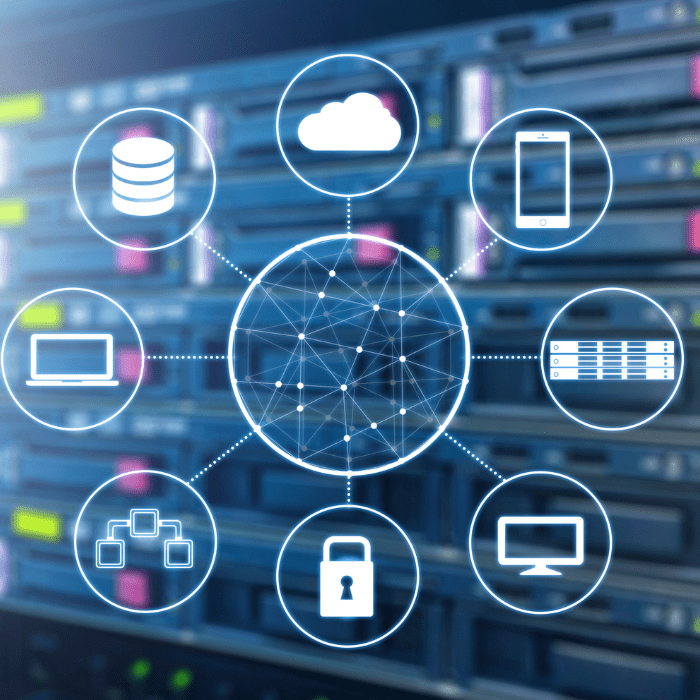If you have a broken disk, you know how annoying it is, but there are cases where the problem can be fixed.
Oh, a slow disk. Anyone who has experienced this knows how much it annoys even the most patient users. After all, how can such an advanced component fail to keep up with our speed of thought, making us wait for seconds (or sometimes even minutes)?
Whether it is a slow disk when playing games, or a disk that breaks down in everyday use, any sign of slowness usually brings a dose of dissatisfaction and impatience.
At the same time, however, this should raise alarm bells. After all, if your disk is slow, there is probably something wrong, and the sooner it is identified and repaired, the sooner you will have your computer or laptop back in ideal condition.
Read on to learn more about the subject, understand what can cause this slowness and what to do to try to solve the problem.

What can cause a slow disk?
There’s no shortage of reasons, but it is important to know them all in order to keep an eye on any signs your device may be showing. Check out what they are, along with possible solutions:
Outdated systems and drivers
The operating system (OS) and drivers of computers are constantly updated. You have probably come across these updates when you tried to turn off your computer and it kept updating for a few minutes before actually shutting down.
There are various reasons why manufacturers and software developers update, such as improving security, adding new features and improving performance.
So if your OS is out of date, your disk and computer as a whole may run slower than they should.
Possible solution: perform the updates recommended by manufacturers and software developers.
Programs running at start-up
Not everyone knows this, but as soon as you turn on your computer, some programs start running automatically, even if you haven’t run them. This eats up your PC’s performance and, as a result, can cause slowdowns.
Possible solution: In Windows 10, press Ctrl + Alt + Del at the same time and click on “Task Manager”. Then select the “Startup” tab and check the “Startup impact” column. See what’s marked “High” or “Medium” and, if it’s something you don’t use, select it and click “Disable”.
On your Mac, click on the Apple Menu and then on “System Preferences”. Then go to “Users and Groups”, choose the user and click on the program you want to remove from automatic start-up, then click on the “-” button.
But here’s the recommendation: if you don’t know what each program is for, it is not a good idea to remove it from autostart. Only remove programs that you are sure what they are for.
A slow disk is not only the fault of the hard disk. Just like in a car, where the parts and components are interconnected, problems in one can lead to a drop in performance in others.
A lack of RAM is one such case. It works with the processor, transporting data and information from the programs installed on the computer.
The more programs that are running at the same time, the more the RAM will be “loaded”, to the point where it impairs the computer’s performance, which can lead you to believe that it is a slow disk.
Possible solution: in addition to disabling programs that start with the system, you can close applications that are not being used at the time, which frees up RAM and tends to improve processing speed.
Overheating
Higher temperatures can reduce a disk’s performance. A simple demonstration of this is when a laptop is used on the lap for a long time: the device heats up and it is not uncommon to find the disk crashing, even in the simplest operations.
In addition, it should be noted that excess temperature can reduce the useful life of a disk by up to two years, as tests by National Instruments have shown.
Possible solution: try to use laptops on hard surfaces. When left on your lap, on a cushion or other “softer” surfaces, it can happen that the air vents are blocked, which eventually causes overheating.
In addition, overheating can also be caused by problems with the computer’s cooling system, such as the coolers and water coolers. If they can’t be fixed, the best option is to replace the component.
Multitasking
Multitasking consists of using several programs at the same time. With a lot to load and write, the disk’s writing and reading speed can suffer.
Possible solution: close the programs you are not using. Preferably leave only those that are essential, which results in better performance for the whole system.
Full storage
Returning to the comparison with cars, compare the same vehicle in two situations: in the first, only the driver is in the car; while in the second, there is a passenger in the passenger seat and three more in the back, as well as a full trunk.
It is clear that the car’s performance will be better in the first situation than in the second. In fact, the more powerful the engine, the less difference you’ll feel with the excess weight, but it does exist.
The same can result in a disk jam. When the hard disk is full, the operating system has no free space to work normally, which affects the creation of temporary files, for example.
Possible solution: delete files you don’t need. Emptying the recycle bin can help, but make sure you don’t delete something you shouldn’t.
If the disk is full of really important files, one solution is to invest in a new disk with more storage space. External disks are even better for this purpose, as they don’t require you to open your computer to replace the part.
Fragmented disk
You have probably heard of disk defragmentation, or even performed the procedure a few times. But do you know what a fragmented disk is?
Basically, fragmentation is the result of constant modifications to the files on the disk. As a result, they are stored in “pieces” (fragments), which makes reading and writing slower than if they were all in a single “fragment”.
Possible solution: defragment the disk. This will rearrange the “chunks” of files according to their data, bringing them closer to the reader and therefore improving the speed of reading and writing data.
In Windows 10, open the Windows search bar and type “Defrag” (without the quotes). Select the “defrag and optimize drives” option, choose the desired disk drive and then click “Optimize”.
On the Mac, this is a rarer necessity. After all, all versions from OS X 10.2 onwards have an automatic defragmentation feature, which the OS itself does to optimize the hard drive.
Here’s another caution: never defragment SSDs, only disks. Since SSDs have no mechanical movement, there is no point in bringing the files closer to the reader.
In fact, defragmenting an SSD causes the information on the disk to be relocated between sectors unnecessarily, which can shorten its useful life.
Read more: SSD or disk, what’s the difference, which is better and how do you know if it’s SSD or disk?
Viruses
The presence of viruses and malware can also result in a slow disk, as unnecessary – and even dangerous – operations are being carried out on the hard disk.
Possible solution: use a good antivirus on your computer. Although it requires processing power, the benefits are much higher than the risks.
Old disk
Last but not least, having a disk with breaks can be a sign that it has already fulfilled its role as a component and therefore needs to make way for a new storage disk.
Possible solution: replace the disk with a newer model, preferably an SSD, whose read and write speed is significantly higher.
How do I test a slow disk?
The first, more empirical test consists of daily use. If you use your computer a lot, you will probably notice when its performance is below expectations.
In the event of any suspicions, it is worth going to a specialist to find out if there is a problem causing the slow disk.
It could be a software issue, where a few simple procedures will do the trick. However, if the problem is hardware, then it’s likely that a part or component will need to be replaced.
How do I recover a slow external disk?
Basically, the same tips we looked at earlier also apply to an external disk with PC breaks. So it is worth applying them to see if the device starts to perform better.
Disk with breaks: an annoying situation, but one that can be fixed

Having a disk that constantly crashes is far from being ideal, but it is something we are always susceptible to. By keeping an eye on the possible reasons and solutions we’ve highlighted above, it’s easier to discover and solve the problem.
If your problem isn’t a slow disk, but the loss of important files, remember that you can always count on disk decovery from Bot. That way, you’ll have the best professionals on hand to recover your important files and documents!


